Don't Buy Cages, Plant Trees
There’s a phrase that stuck with me for a while, and I thought I could expand on it in this essay. It goes as follows: if you want to listen to bird songs, don’t buy a cage, plant a tree.
And it made me look around at so many attempts of ours to tame the wild to our liking, to have as much as possible in our command, instead of enjoying it as it is. Today we will only focus on what is closer to us, and that is our cities that we live in.
We are struggling so much to make everything neat and completely sterile, yet we yearn for nature and we try to replace it in our homes with caged birds, artificial flowers and plants. We pave every inch of our gardens and streets, yet we save up so that we could have a weekend in nature now and then.
The solution is quite simple, and it involves leaving space for nature. We will talk about rewilding at larger scale in a future essay, but for now, let us have a look at our doorstep.
Green space in a city doesn't have to be isolated in parks and on the outskirts, but it should become an integral part of every street.
And in order to rewild as much as our world back, we need to make the most of every space we have. Nature doesn't only exist out there, far away from our cement surroundings, but it can and should be here, with us, in our cities.
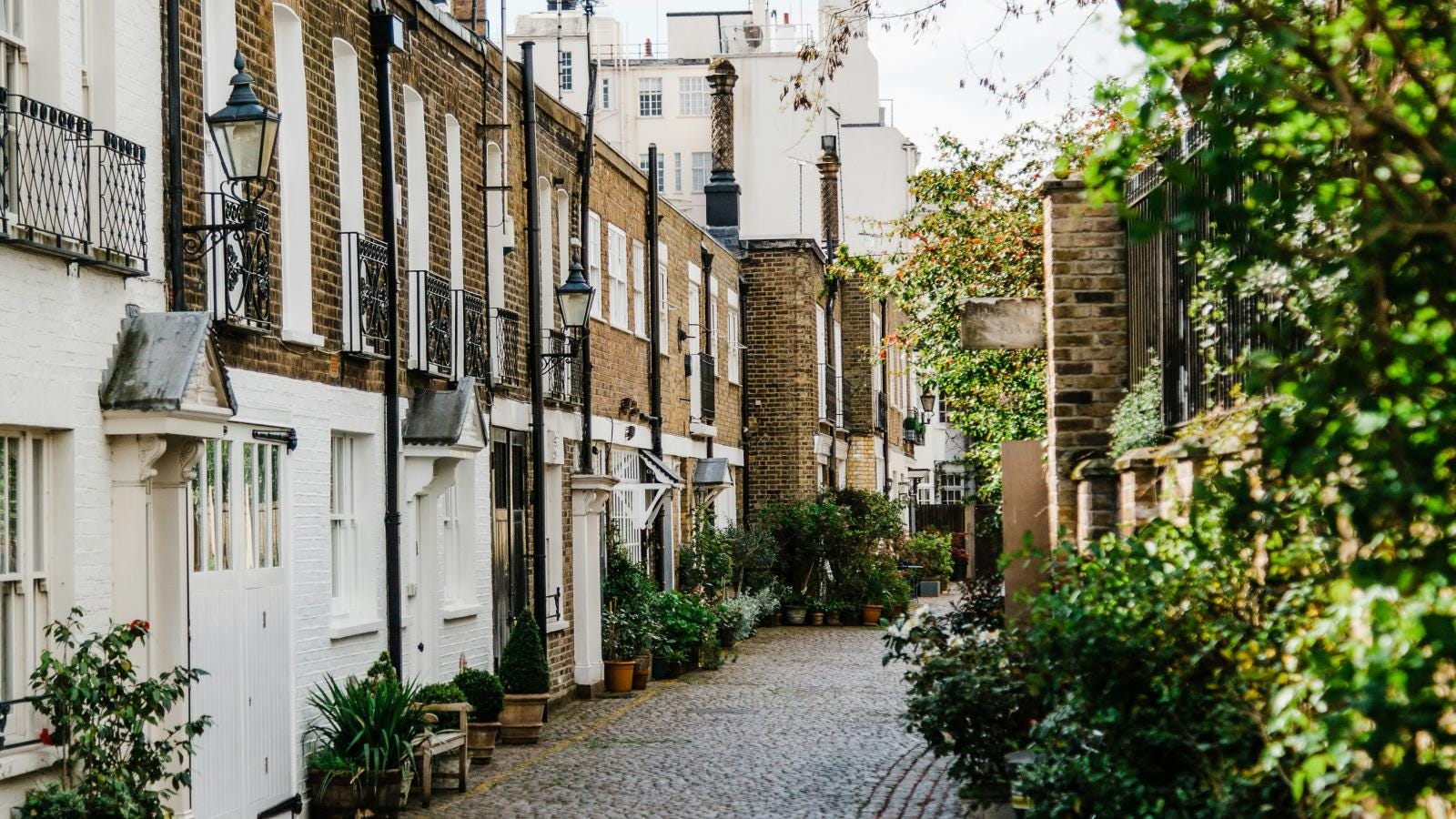
Benefits
As climate change is causing fiercer heatwaves, trees will be absolutely necessary to reduce the heat island effect and make our lives more comfortable.
The current heatwave affecting Europe (Summer 2025) is just a drop of what’s to come in the following years.
Green spaces make cities more liveable and we can physically feel their impact. Trees and shrubs help cool down a city on a hot day, sometimes with more than 8 degrees Celsius difference.
Nature sounds and time spent in nature is incredibly helpful for our mental health, too, as confirmed by different studies. So why escape our cities with every occasion or imagine our life in a completely isolated cabin in the woods, when we can invite nature on our balconies, our streets and our gardens?
The health benefits of spending time in nature are well documented. Being in nature and building a deep connection with the natural world around us, often referred to as rewilding ourselves, can boost both our mental and physical health. Green, biodiverse spaces are great places for rest, recreation and mental reset.
Trees will also help the wildlife, including the migratory species that need a place to nest, rest or take cover. Swifts and sparrows, that are red listed in some countries, take advantage of the cover of the trees in their feeding grounds. Why not care for them, too?
Our climate is changing, and our green spaces become ever more important. We need green spaces to reduce temperatures in cities and limit the risk and impact of flooding. Places that are home to a diversity of plant and animal species are also more resilient to stresses such as drought and pollution.
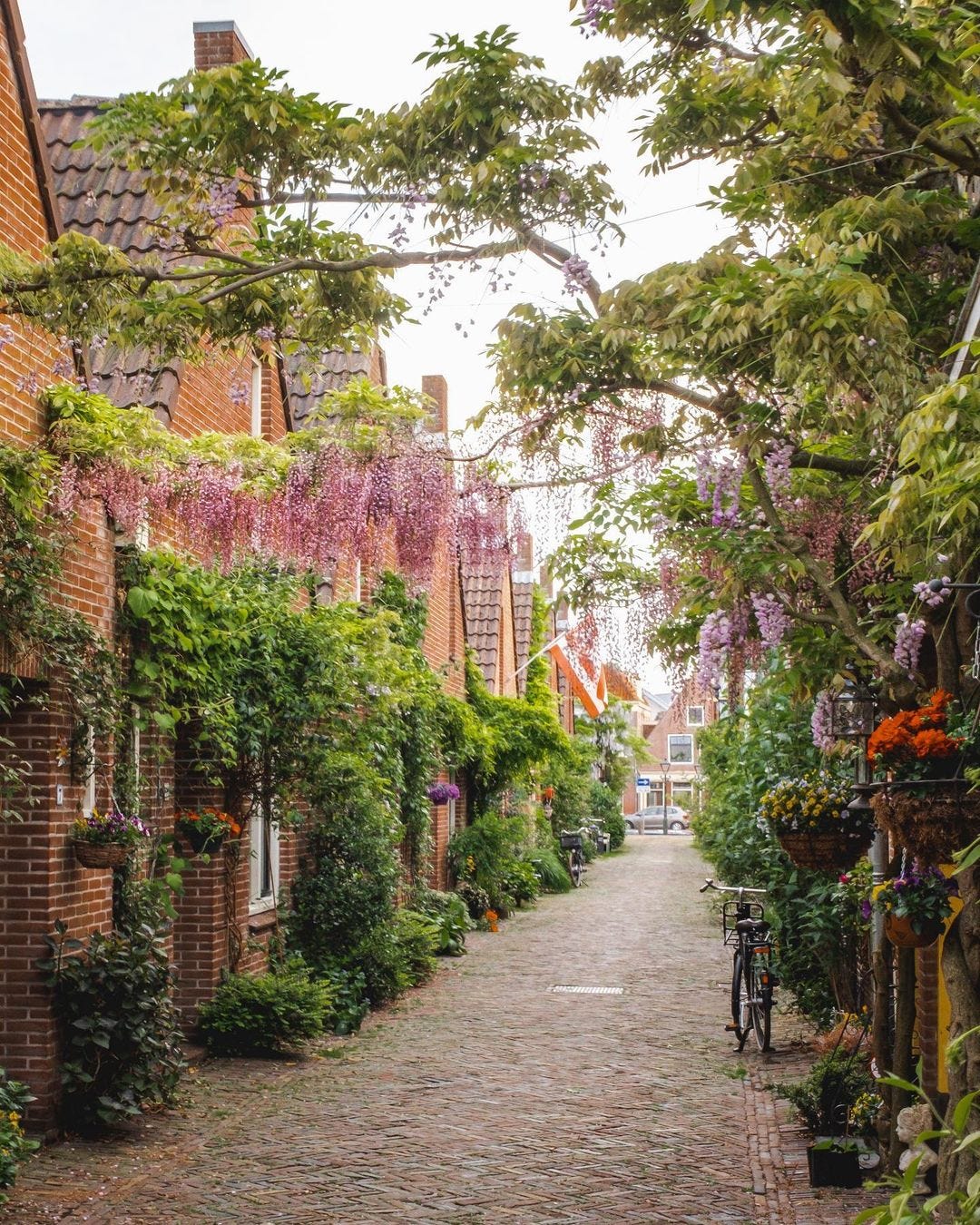
Local action
If you live in a city or town, you and the communities around you can play a central role when thinking about rewilding the urban environment. After all, it's people who will visit, notice, use, manage and feel the benefits of the nature around them.
Recently, together with some neighbours, we decided to turn an abandoned corner into a little haven for everyone. Prior to it, people would just pile rubbish with no remorse, rarely clean after their dogs, and occasionally even park their car there, illegally.
We’ve planted some trees, shrubs and flowers. We arranged some borders to have it stand out, and we installed some bird feeders. Ever since we started, we’ve had loads of people passing by getting interested in our project. We even had people coming with bird feed for out station, so it definitely serves as an inspiration for others, too!
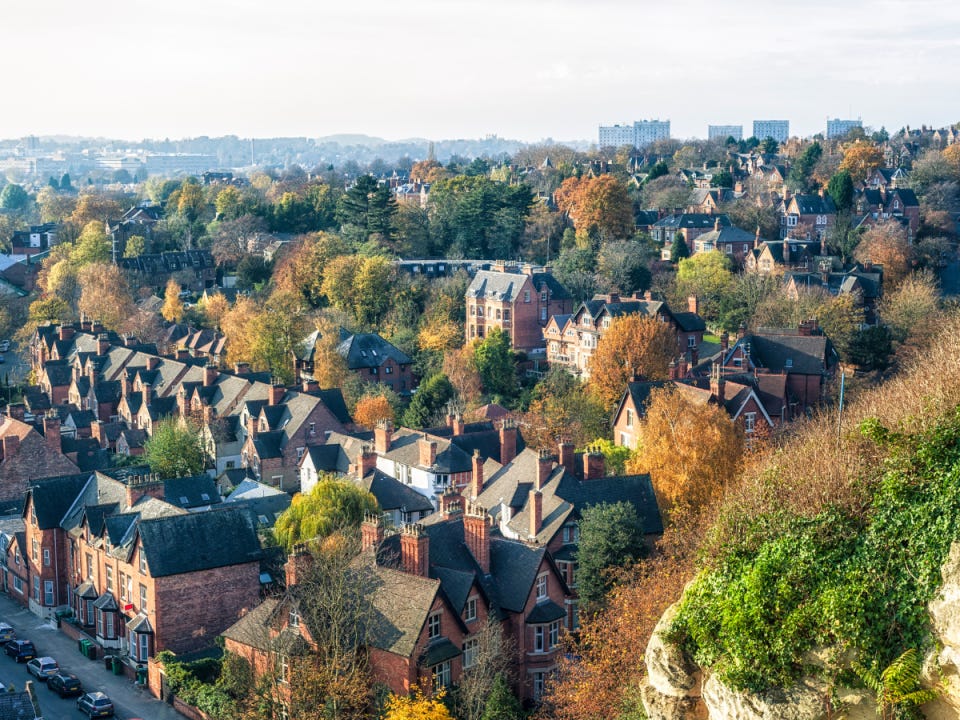
Let’s get green
In this increasingly urbanised world - which isn't to say it's a bad thing - more and more people grow up never seeing a wild animal, except for probably the occasional rat or pigeon.
We need to leave space for nature to be nature, but we also need to invite it in our lives, too. Conservation shouldn't only be looked at just as building national parks, as we're risking creating these environment bubbles that can no longer exist without intervention. We should treat the system as a whole.
Living in a city is often viewed as the antithesis of embracing nature, but it doesn't have to be.
Nowadays, especially, it feels like we're struggling so much to go for shiny, high tech and complicated solutions, when we are completely ignoring what's easier.
I've seen projects struggling to plant trees on the facades of high rise buildings, and while it may be a viable solution in some cases, we should really focus on what's already there: plenty of misused space at the ground level, with not enough trees, flowers, shrubs or water.
One parking space can mean around twelve square meters of greenery - be it in a container or not. Let’s use that space better.
Recently, we saw Breda taking the title of a new National Park City, the first in the Netherlands, and the second in Europe after London.
Paris has done incredible progress in restoring the city - even making the river Seine clean enough to swim in.
There are many more positive examples for wilder cities, too:
Wilder cities
In a world of flashing advertisements, rampant consumerism, and the relentless hum of urban life, we find ourselves disconnected—from nature, from each other, from the quiet corners of our own minds. The modern cityscape can be testament to progress, but at what cost? Amidst the concrete and steel, there is a hunger for something wilder. Something softe…
Conclusion
When we live alongside nature, we end up happier and healthier. We get to help the wildlife. We might even end up rewilding ourselves.
Let us be the generation that plants more trees than we cut down.
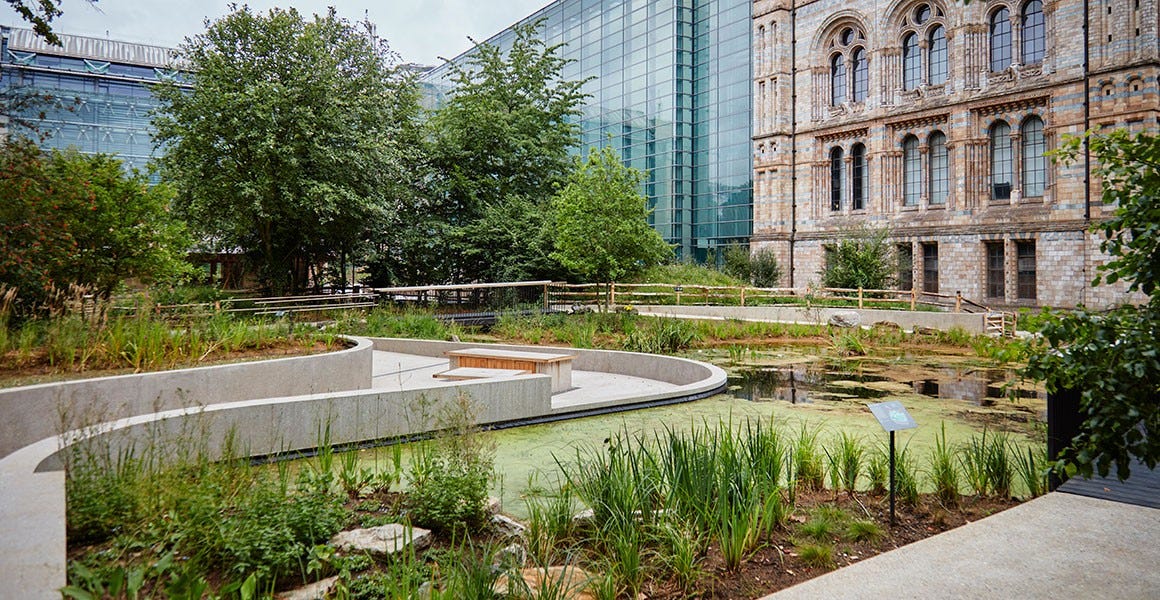
References:
[1] Creating healthy corridors: https://projects.research-and-innovation.ec.europa.eu/en/projects/success-stories/all/co-creating-healthy-corridors-europes-biggest-cities
[2] Urban biodiversity: https://biologyinsights.com/what-is-urban-biodiversity-and-why-is-it-important/
[3] Why should we rewild? https://www.nhm.ac.uk/discover/why-we-should-rewild.html
[4] About rewilding: https://www.monbiot.com/2025/05/12/pasturised/
[5] Cities with nature: https://citieswithnature.org/bringing-nature-back-into-urban-life-for-healthier-happier-communities/
[6] Urban trees and migratory birds: https://www.treesforcities.org/resources/how-urban-trees-can-help-migratory-birds
[7] Fiercer heatwaves: https://www.euronews.com/green/2025/01/27/climate-change-could-cause-23-million-more-temperature-related-deaths-in-europe-by-2099-st
[8] Urban green spaces: https://www.nhm.ac.uk/discover/why-we-need-green-spaces-in-cities.html


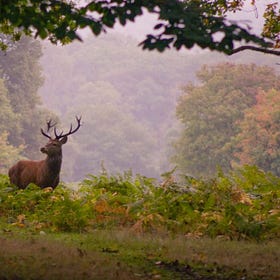
"Let us be the generation that plants more trees than we cut down." -- Indeed!!
"So why escape our cities with every occasion or imagine our life in a completely isolated cabin in the woods, when we can invite nature on our balconies, our streets and our gardens?"
<3 <3